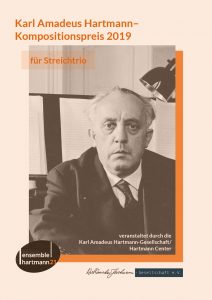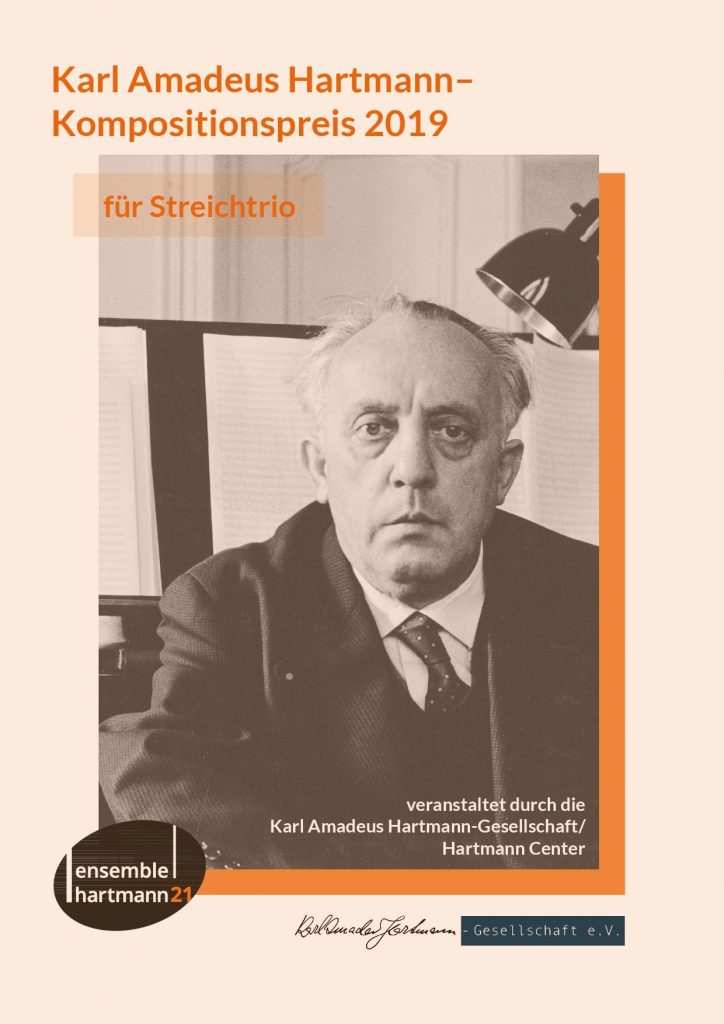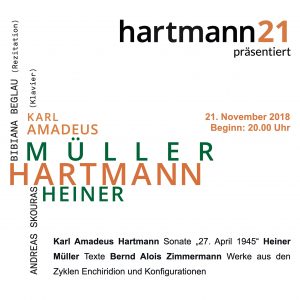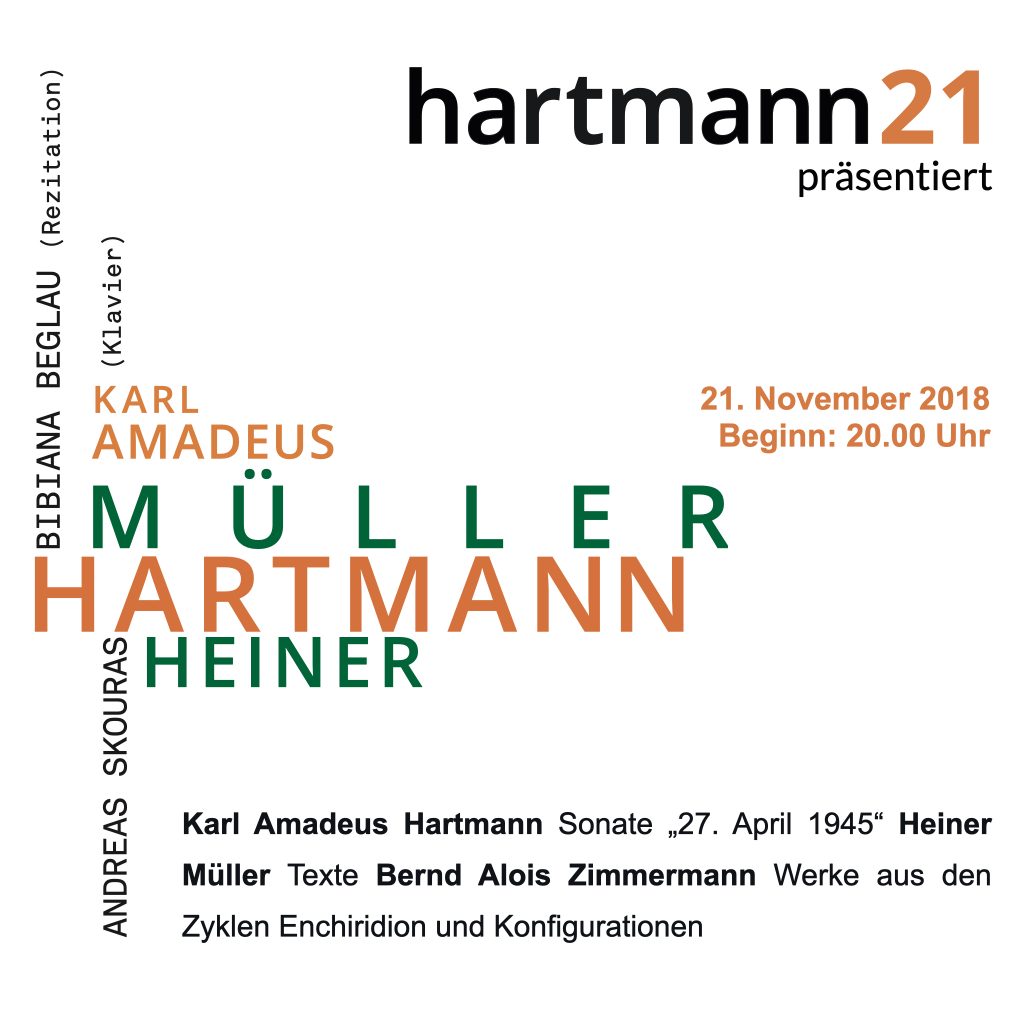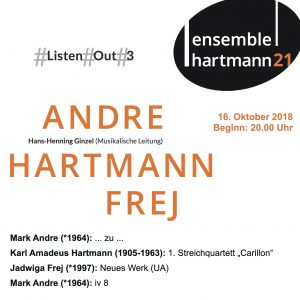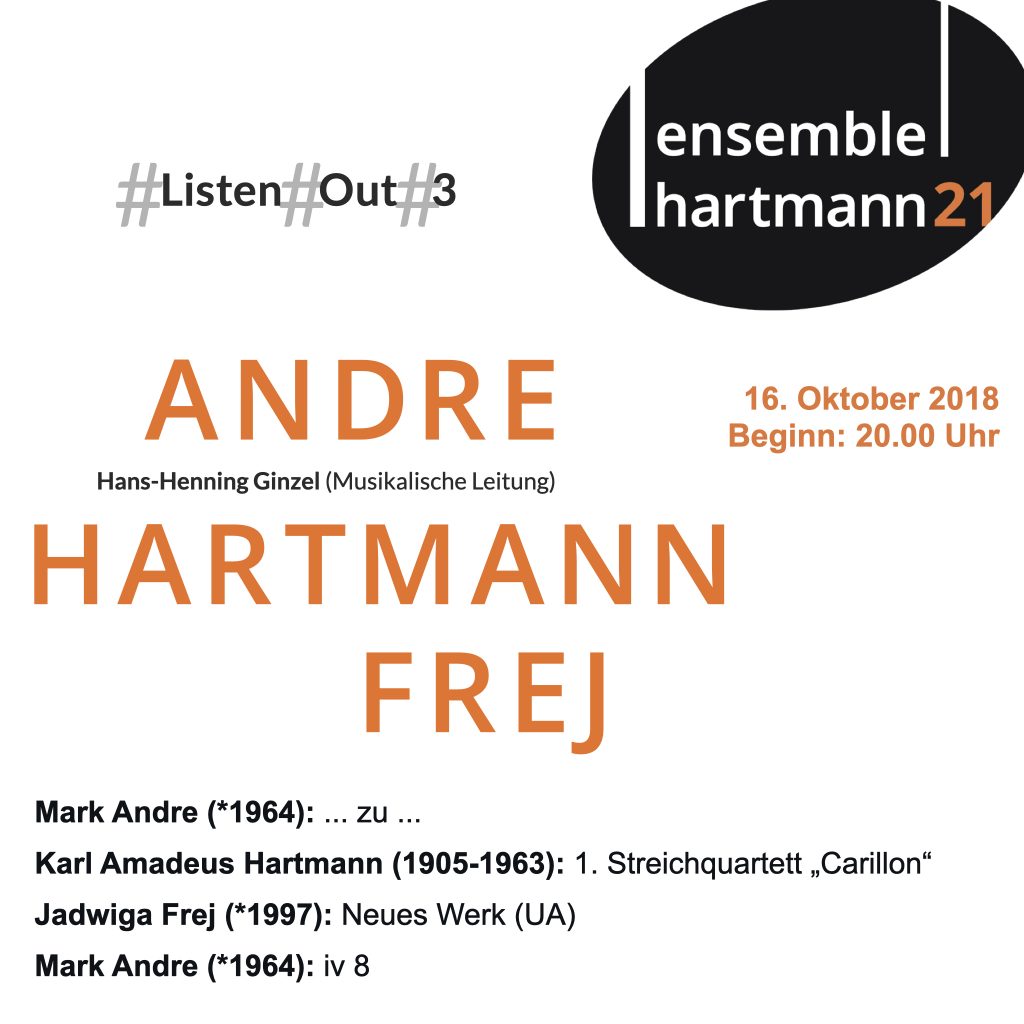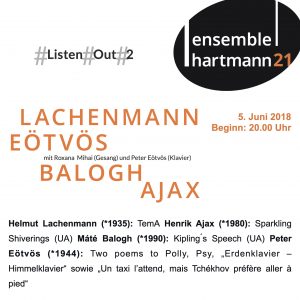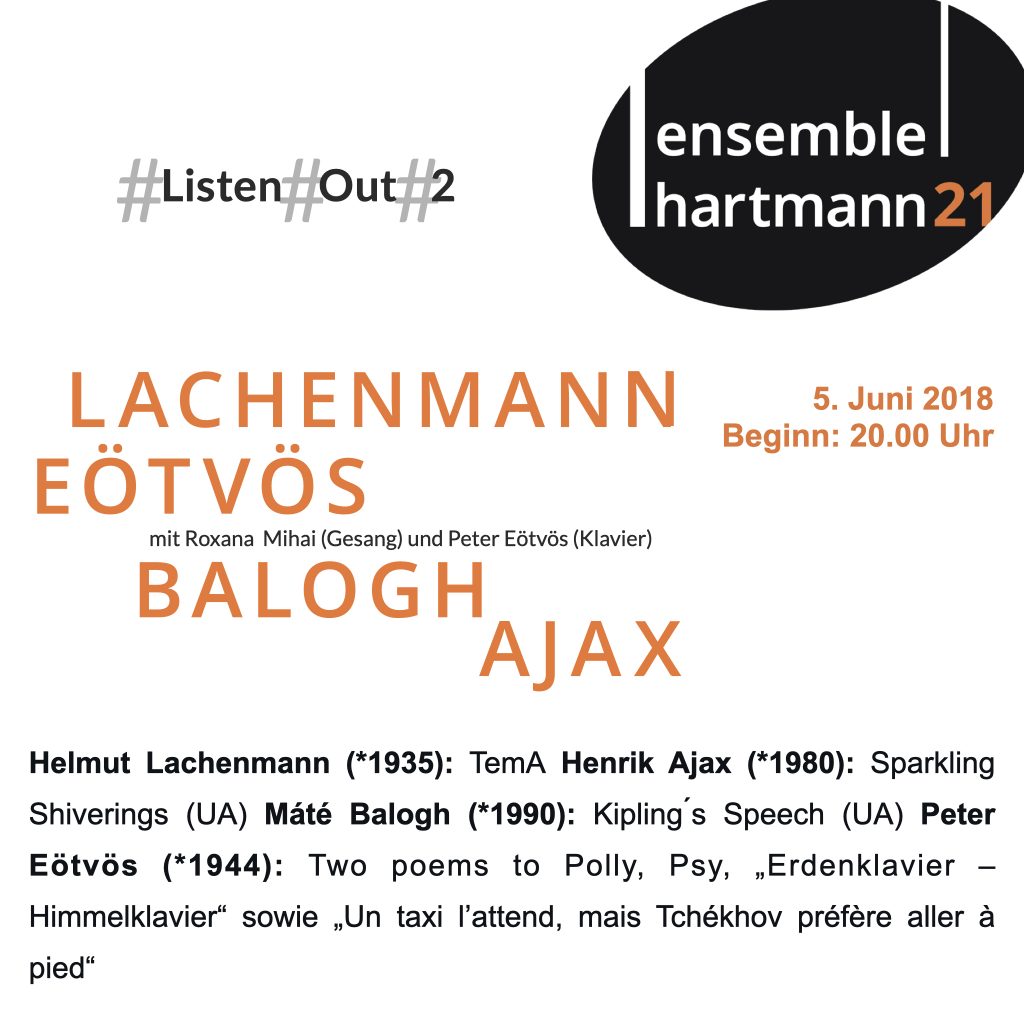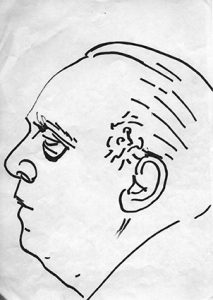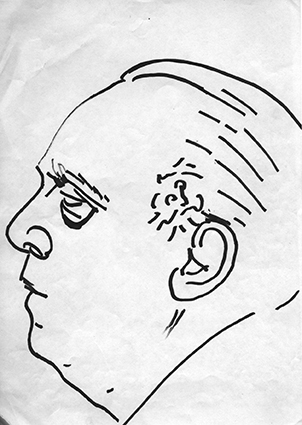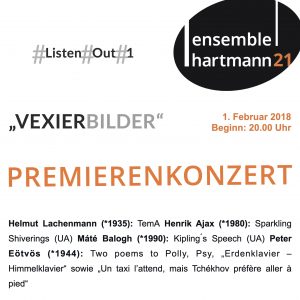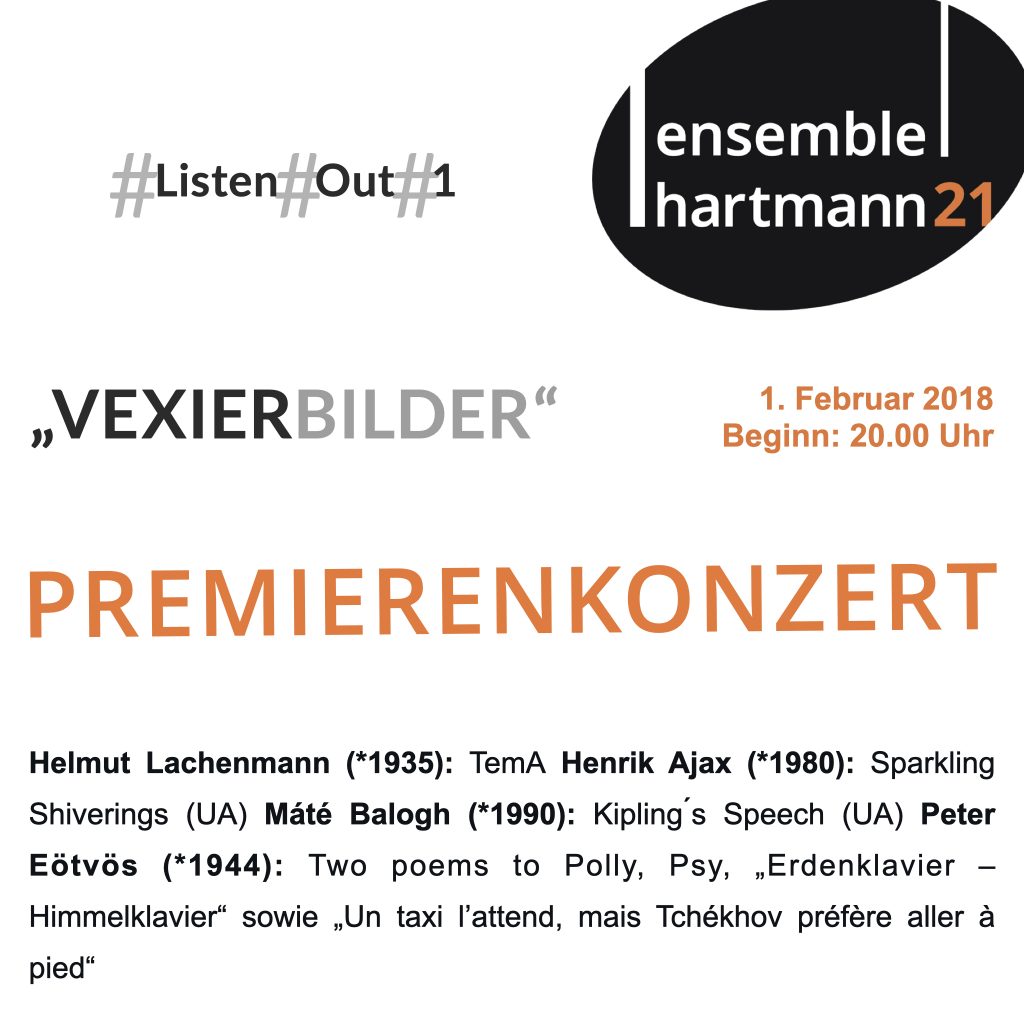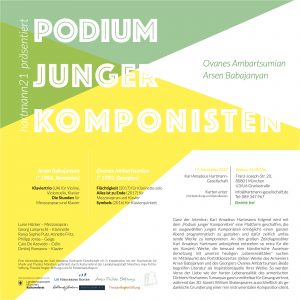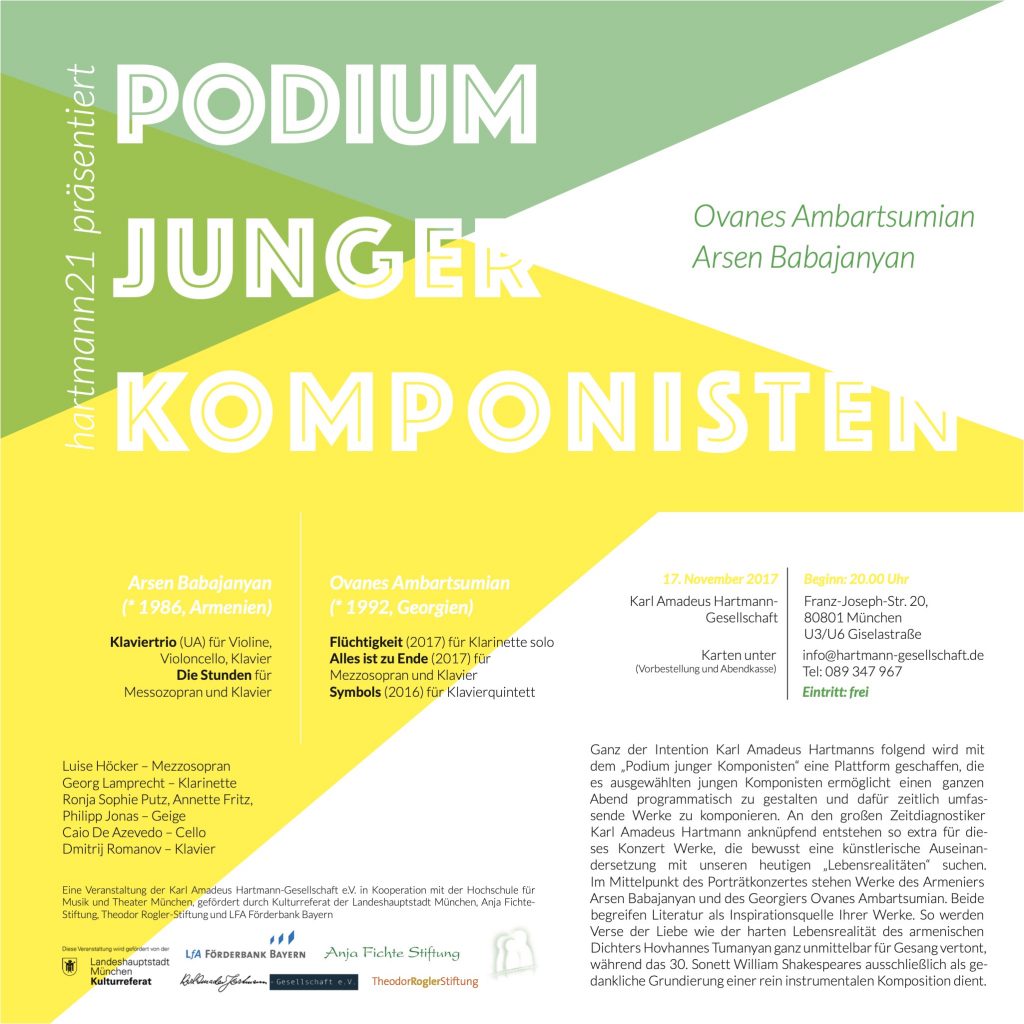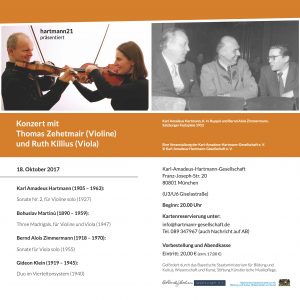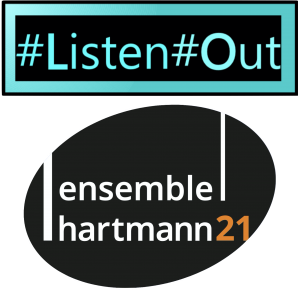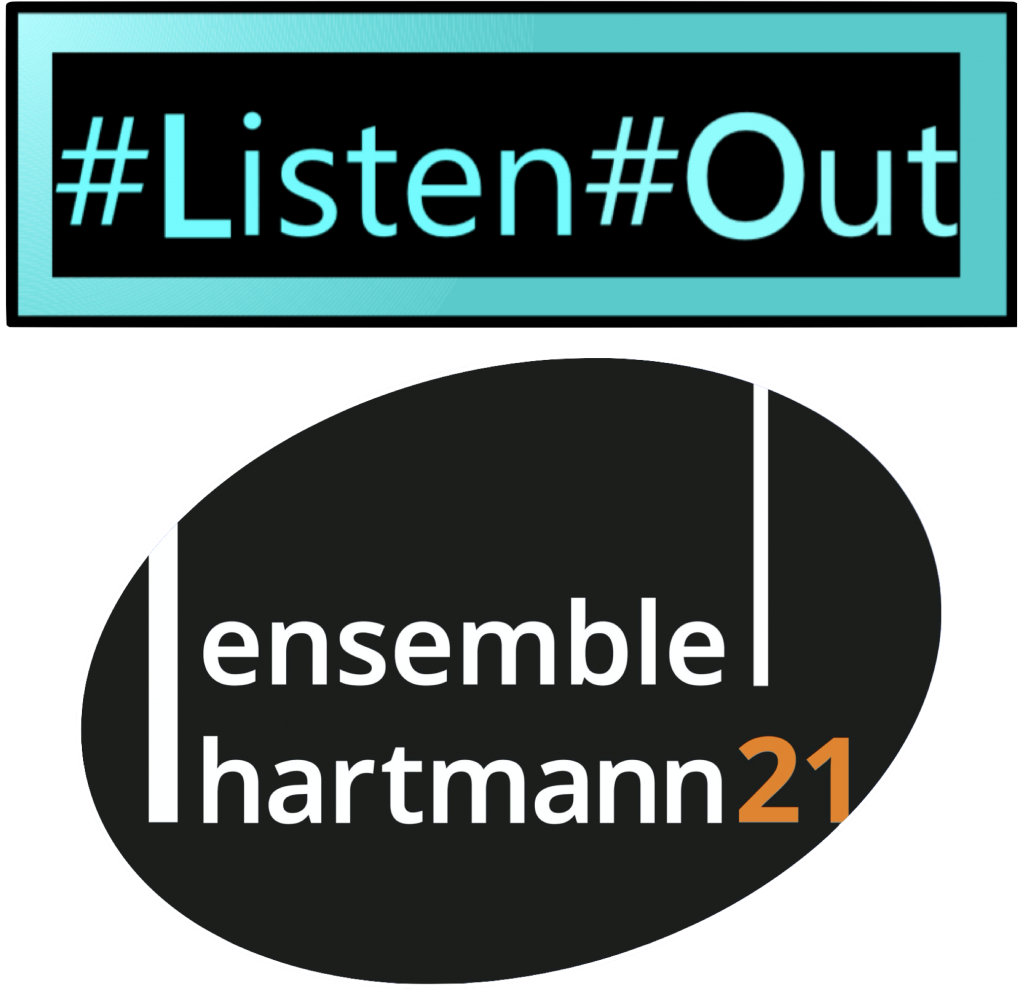With the violinist Thomas Zehetmair, one of the most outstanding and exciting musicians encounters Hartmann’s work, exposes himself to it, reflects, traces references and, as an interpreter, lets the listener participate in his individual world of experience. In a singularly composed programme, Zehetmair, together with violist Ruth Killius, creates a kaleidoscope of different perspectives and modes of perception and in this way allows one to experience Hartmann’s musically progressive Second sonata for violin solo in a new way, which is radically border-crossing in its tonal language. After Bach and Reger, it was probably only Hartmann who succeeded in giving the violin such an unusually complex polyphony.
The theme of the artistic sublimation of human borderline experiences brackets together the concerts of the 2017 season. In the Sonata for solo viola from 1955 Bernd Alois Zimmermann dealt with the death of his daughter in the same year. In reference to Alban Berg’s violin concerto, he dedicated the work: „… an den Gesang eines Engels“ [“… to the song of an angel”]. The final section of the composition quotes the chorale “Gelobet seist Du Jesu Christ” [“Praise be to You, Jesus Christ”]. Zimmermann described the piece accordingly as a chorale prelude. In this sense, the preceding sections can be understood as a gradual crystallization and condensation of the chorale theme that emerges in its pure form towards the end of the work.
In Bohuslav Martinus’ “Three Madrigals” and Gideon Klein’s “Duo im Vierteltonsystem”, violin and viola now meet and relate to each other in a variety of ways – sometimes as equal partners, sometimes as the upper and lower sides of a page, or as an object and its shadow. Within the Three Madrigals, composed in 1947 in American exile, a playful humour is at work. Alongside and in the middle of the game, however, a deep sadness is also felt, recalling songs and dances from the past. What can no longer be sung and danced, can still be played. Gideon Klein finally composed his “Duo im Vierteltonsystem” in 1940 during his studies in Prague with Alois Hába, the founder of micro-interval composition and long-time companion of Karl Amadeus Hartmann.
An event of the © Karl Amadeus Hartmann-Gesellschaft e. V., sponsored by Staatsministerium für Bildung und Kultus, Wissenschaft und Kunst and Stiftung Künstlerische Musikpflege.
